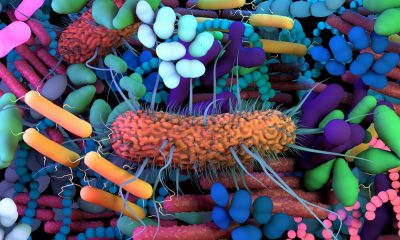The new superfood to get the world talking is the Irish sea moss. Let’s take a look at how healthy the acclaimed supplement is.
“Irish moss is a superfood that has recently gained widespread popularity after glowing endorsements from celebrities like Kim Kardashian,” Jessica Cho, the founder of Wellness at Century City, her practice in Los Angeles, said, EveryDayHealth reported.
Commonly called just sea moss, the filamentous substance is a species of red algae that grows on rocky coastlines along the Atlantic coast across the British Isles, continental Europe, and North America.
Calorie-free, sea moss has a great nutritional profile. Every two tablespoons (tbsp) of sea moss has the following nutrition, according to the U.S. Department of Agriculture.
- Calories: 5
- Total fat: 0.02 grams (g)
- Protein: 0.2g
- Carbohydrates: 1.2g
- Dietary fiber: 0.13g
- Sugars: 0.06g
- Calcium: 7.2 milligrams (mg)
- Iron: 0.89mg
- Magnesium: 14.4mg
- Potassium : 6.3mg
- Vitamin A : 0.6 micrograms (mcg)
- Vitamin C : 0.3mg
- Vitamin K: 0.5mcg
“[Sea moss] is rich in iodine, among other vital nutrients. As a result, it may offer health benefits including improved heart health, improved blood sugar regulation, and reduced risk of cancer,” Kristin Gillespie, who is based in Virginia Beach, Virginia, noted.
Sea moss has been used traditionally in many cultures.
“This particular type of sea algae has been used medicinally around the world for a long time,” Robin Foroutan, a registered dietitian with The Morrison Center in New York City, said, as per the outlet. “When a food has been around medicinally that long, there’s usually some truth to it, even if we don’t have the research to support it.”
The vegan, gluten-free supplement is believed to have many health benefits such as improving gut health, boosting immunity, supporting weight loss, and even boosting heart health.
Among other things, sea moss contains sulfur, which can help in the treatment of acne as well as fungal and yeast infections of the skin, according to Karan Lal, a board-certified dermatologist with Schweiger Dermatology Group in Hackensack, New Jersey.
The arginine present in the moss may also promote the replacement of dead skin cells, Dr. Lal added.
Another compound present in the sea moss, called carrageenan may offer some health benefits too. Carrageenan is said to be antibacterial, antiviral, anti-tumor, anti-thrombotic, and anticoagulant.
How to prepare sea moss
According to WebMD, sea moss needs to be washed and then soaked in cold water for 24 hours. While it is being soaked, the water needs to be changed frequently. When the moss has increased twice in size and become white and gelatinous, it is ready to be used. Next, blend the sea moss and some water in a blender until it becomes a thick liquid.
This prepared sea moss can be stored in the fridge for up to 2 weeks, and used in different recipes. According to the outlet, one can make smoothies, soups, stews, and baked goods by using sea moss as a thickening agent.
















